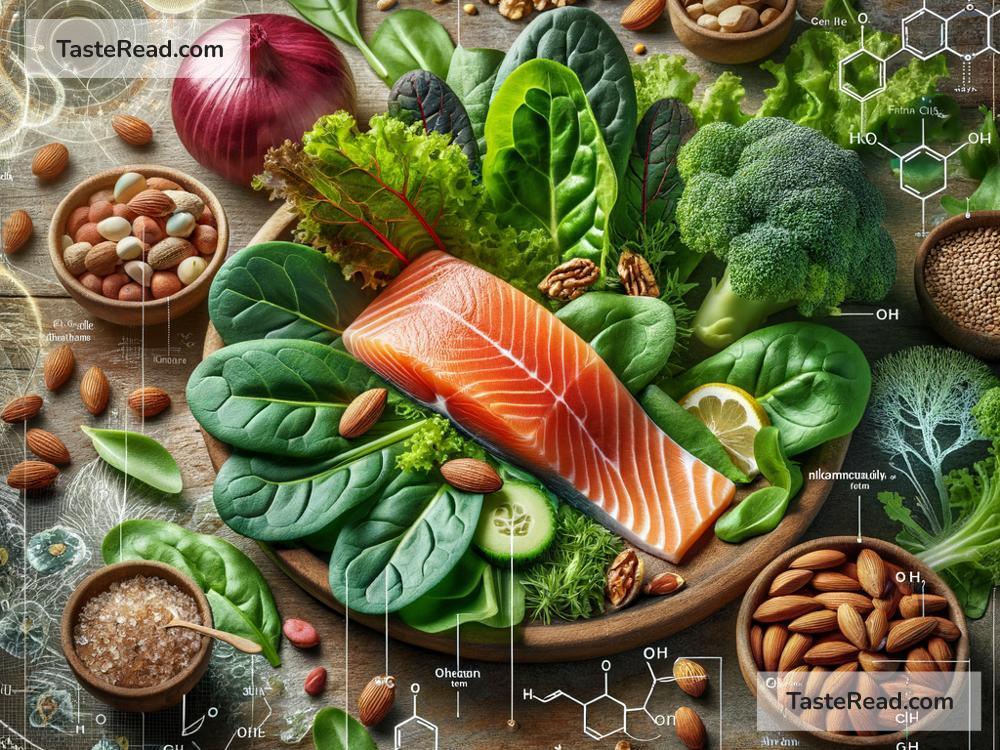The Role of Vitamin B48 in Metabolic Health
Have you ever heard of Vitamin B48? Probably not, and there’s a good reason for that—it doesn’t exist! Many people are familiar with vitamins like B12, B1, and other members of the “Vitamin B family,” but Vitamin B48 is not a recognized nutrient or compound in the scientific world. However, since you’re curious to learn, let’s use this intriguing opportunity to discuss some general points about the B vitamins and their important role in keeping our metabolic health in check.
While Vitamin B48 may be fictional, the actual B vitamins play a crucial part in helping our bodies turn the food we eat into energy. These vitamins are like tiny helpers that support chemical reactions in our cells, keeping everything running smoothly. Let’s explore why these vitamins matter for metabolic health and how you can make sure you’re getting enough of them.
What Are B Vitamins?
Vitamin B is not just one vitamin—it’s a group of eight vitamins, each with its unique roles. These include:
- Vitamin B1 (Thiamine): Helps convert carbohydrates into energy.
- Vitamin B2 (Riboflavin): Important for energy production and cell function.
- Vitamin B3 (Niacin): Supports energy metabolism and helps make DNA.
- Vitamin B5 (Pantothenic acid): Essential for producing energy and fatty acids.
- Vitamin B6 (Pyridoxine): Crucial for brain development and metabolism of proteins.
- Vitamin B7 (Biotin): Plays a key role in breaking down fats, carbs, and proteins.
- Vitamin B9 (Folate): Supports healthy cell growth, especially during pregnancy.
- Vitamin B12 (Cobalamin): Helps create red blood cells and supports nervous system function.
Each of these vitamins contributes to metabolic health, helping your body efficiently use the nutrients in your food as fuel for energy.
How Do B Vitamins Support Metabolic Health?
Metabolic health refers to how well your body processes and uses energy. A person with good metabolic health can easily balance blood sugar levels, cholesterol, and triglycerides while maintaining a healthy weight. B vitamins actively help your metabolism in several ways:
-
Energy Production: B vitamins act as coenzymes, which means they assist enzymes in converting food into usable energy. Carbs, proteins, and fats all need the B vitamins to be metabolized properly.
-
Fat and Protein Processing: Vitamins like B6, B7, and B12 help break down fats and proteins for energy or storage.
-
Cell Repair and Growth: Your cells constantly repair themselves, and vitamins like B9 and B12 are critical for forming new cells and DNA.
-
Blood Sugar Regulation: Some B vitamins, like B1 and B3, play a role in stabilizing blood sugar levels. This is particularly important for people at risk of diabetes or insulin resistance.
-
Brain Function: Metabolic health isn’t just about your body—it’s also about your mind. B vitamins keep your brain alert and functioning by providing energy to neurons.
What Happens When You Don’t Get Enough B Vitamins?
A lack of B vitamins can lead to serious health problems. Because the vitamins work together, missing even one can disrupt metabolic processes. Some common vitamin deficiencies and their effects include:
- Vitamin B12 Deficiency: Can cause fatigue, memory problems, and anemia.
- Vitamin B6 Deficiency: May lead to nerve damage, irritability, and weakened immunity.
- Vitamin B1 Deficiency: Leads to symptoms like weakness, confusion, and nerve dysfunction (a condition called beriberi).
If your metabolism isn’t working properly because you’re missing B vitamins, you might notice problems like low energy, weight changes, or trouble focusing.
How Can You Get Enough B Vitamins?
The best way to get your daily dose of B vitamins is through a healthy and balanced diet. Here are some foods rich in B vitamins:
- Whole Grains: Brown rice, oats, and whole wheat provide B1, B2, and B3.
- Dairy Products: Milk and cheese are good sources of B2 and B12.
- Meat and Fish: Chicken, beef, salmon, and eggs contain several B vitamins like B6 and B12.
- Leafy Greens: Spinach and kale are packed with folate (B9).
- Nuts and Seeds: Almonds, walnuts, and sunflower seeds contain B vitamins like B7 and B5.
- Legumes: Lentils, chickpeas, and beans offer a great source of B1 and B9.
For people who have trouble getting enough B vitamins from food—such as vegans who may lack B12—vitamin supplements can help close the gap. Be sure to consult a doctor before starting supplements.
The Bottom Line
Even though Vitamin B48 isn’t real, the existing B vitamins are truly essential for your metabolic health. They act as helpers to convert food into energy, repair your cells, and keep your brain and body working smoothly. Without them, it would be difficult for your body to function properly.
By eating a variety of nutritious foods, you can ensure that you’re getting enough of the B vitamins you need. And remember, taking care of your metabolism is not just about eating right—it’s also about staying active, managing stress, and getting enough sleep.
By giving your body the tools it needs, you can enjoy better energy, clearer thinking, and overall health—a win-win for anyone!


